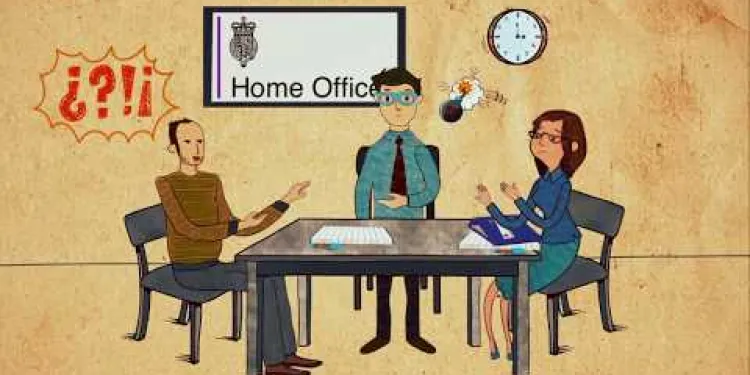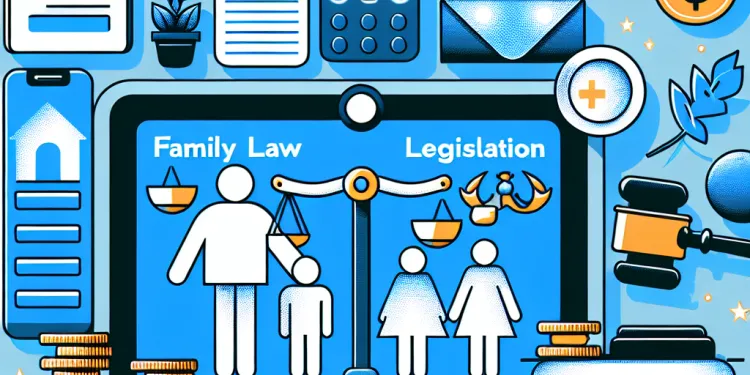
Find Help
More Items From Ergsy search
-

New Asylum Seekers Legislation Sparks Nationwide Debate
Relevance: 100%
-

An introduction to claiming asylum in the UK
Relevance: 38%
-

The asylum screening interview
Relevance: 35%
-

How is the Attorney General involved in the legislative process in the UK?
Relevance: 25%
-

Controversy Surrounds New Surveillance Legislation as Privacy Groups Voice Concerns
Relevance: 22%
-

Government Faces Legal Challenge Over Proposed Immigration Bill
Relevance: 21%
-

Nationwide Flu Vaccination Campaign Targets Vulnerable Populations
Relevance: 19%
-

Debate Intensifies Over Welfare Reforms Impacting Disabled Citizens
Relevance: 18%
-

Impacts of Recent Changes to Family Law Legislation
Relevance: 18%
-

Employment Tribunal Cases Surge Amidst Gig Economy Debate
Relevance: 17%
-

Calls for Better School Lunch Standards After Nationwide Survey
Relevance: 17%
-

Pension Proposals Spark Debate on Retirement Age and Benefits
Relevance: 17%
-

Understanding Parental Rights in Light of New UK Child Protection Legislation
Relevance: 16%
-

Understanding the Impact of the UK's New Domestic Abuse Legislation
Relevance: 15%
-

Children Act 1989 section 20 - Legislation
Relevance: 13%
-

Judicial Appointments Under Scrutiny as Diversity Reports Spark Debate
Relevance: 13%
-

Has the government introduced any new legislation to address this issue?
Relevance: 13%
-

Has the idea of a wealth tax been discussed in political debates?
Relevance: 13%
-

Ministers to Debate Extension of Free School Meals for Low-Income Families
Relevance: 12%
-

MPs Seek Judicial Review Over Voting Age Reduction
Relevance: 10%
-

Has the UK parliament discussed the feasibility of a social media ban for under 16s?
Relevance: 8%
-

What would a social media ban for under 16s in the UK entail?
Relevance: 8%
-

When are the proposed cuts expected to take effect?
Relevance: 8%
-

Are there any changes to spousal support regulations in 2026?
Relevance: 8%
-

What are Healthy Start vouchers in the UK?
Relevance: 8%
-

Is the UK introducing a Social Media ban for under 16's?
Relevance: 8%
-

Are marijuana-related offences still considered drug crimes?
Relevance: 8%
-

How do I know if I'm eligible for free NHS dental care?
Relevance: 8%
-

Who is eligible for Healthy Start vouchers?
Relevance: 8%
-

How much money can I receive from the Sure Start Grant?
Relevance: 8%
-

Who is eligible for the NHS Low Income Scheme?
Relevance: 7%
-

When will the new HMRC tax changes be officially confirmed?
Relevance: 7%
-

Do National Trust jobs require travel?
Relevance: 7%
-

What are Healthy Start vouchers?
Relevance: 7%
-

Why doesn't the UK have a wealth tax?
Relevance: 7%
-

How soon could a social media ban for under 16s be implemented in the UK?
Relevance: 7%
-

What age restrictions apply to purchasing e-cigarettes under the new rules?
Relevance: 7%
-

Legal Aid Cuts: Campaigners Warn of Access to Justice Crisis
Relevance: 7%
-

Is there any international interest in Australia's social media ban?
Relevance: 7%
-

Are there specific laws governing SEND in schools?
Relevance: 7%
Introduction
The UK government has recently introduced new legislation aimed at reforming the current asylum system. This move has sparked a nationwide debate, with opinions divided over the potential impacts on both asylum seekers and the wider community. The legislation comes at a time when immigration and the treatment of refugees remain highly contentious issues in British politics.
The New Legislation
The proposed changes are designed to streamline the asylum process, which the government argues is necessary to address the increasing number of applications and to prevent abuse of the system. Key provisions include faster processing of claims, stricter penalties for illegal entry, and enhanced cooperation with other countries to manage asylum pressures. The government asserts that these measures will ensure that the UK can uphold its obligations to genuine refugees while deterring those without valid claims.
Support for the Legislation
Proponents of the new legislation argue that it will restore integrity to the UK's asylum system. Supporters believe that by expediting legal processes and implementing stricter deterrents against illegal entry, the UK can better allocate resources to those in genuine need. They also emphasize the importance of international cooperation in addressing migration issues, advocating for stronger partnerships with countries of origin and transit.
Opposition and Criticism
On the other hand, critics of the legislation raise concerns about the potential impact on human rights and the welfare of asylum seekers. Humanitarian organizations argue that the measures could lead to unfair treatment and insufficient protection for vulnerable individuals. They caution that the emphasis on deterrence could undermine the UK's long-standing commitment to providing refuge to those fleeing persecution. Additionally, there are fears that the new rules may exacerbate hostility towards immigrants, leading to increased social tensions.
Public Debate
The introduction of the legislation has ignited a broad public debate, reflecting wider societal divisions on immigration issues. Media coverage and public forums have hosted discussions with stakeholders from various sectors, including legal experts, advocacy groups, and community leaders. These debates often highlight the challenge of balancing national security and border control with humanitarian obligations and moral responsibilities.
Conclusion
As the debate over the new asylum seekers legislation continues, the outcome will likely have significant implications for the UK's immigration policy and its international reputation. While the government seeks to implement changes that it believes will protect the integrity of the asylum system, the challenge remains to do so without compromising the country's commitment to human rights and international law. The conversation around this legislation is expected to continue as stakeholders from all sides strive to influence its final shape and implementation.
Introduction
The UK government has made new rules about how asylum seekers are treated. This has made people talk a lot about whether these rules are good or bad. Asylum seekers are people who leave their countries to find safety. This is a very important issue in UK politics.
The New Legislation
The new rules want to make the asylum process faster and stop people from cheating the system. The government says this is because more and more people are asking for asylum. The changes include looking at asylum claims more quickly, punishing those who enter the UK illegally, and working with other countries to control asylum problems. The government believes these steps will help real refugees and stop those who are not honest.
Support for the Legislation
People who like the new rules say they will make the asylum process fairer. They think by handling cases faster and making it harder for people to enter illegally, the UK can help those who truly need it. They also believe it is important to work with other countries to solve migration issues.
Opposition and Criticism
But some people do not like these rules. They are worried about the rights and safety of asylum seekers. Groups that help people say the rules might be unfair and not protect those in need. They fear focusing too much on stopping people might harm the UK's promise to help those running away from danger. Some also worry that the new rules might make people dislike immigrants more, causing social problems.
Public Debate
Many people are talking about these new rules. There are discussions in the media and in public meetings with different people, like legal experts and community leaders. These talks show how hard it is to keep the country safe and still be kind and fair to asylum seekers.
Conclusion
The talk about the new asylum rules will go on for some time. What happens next will affect how the UK handles immigration and how other countries see the UK. The government wants to make sure the new rules help and do not hurt the UK's commitment to being fair and kind. Many different people will keep sharing their thoughts to try and change how the new rules will work in the end.
Frequently Asked Questions
What is the new asylum seekers legislation about?
The new legislation is designed to reform the process for seeking asylum, potentially including changes to eligibility criteria, processing times, and legal rights.
Why is the new asylum seekers legislation sparking nationwide debate?
The debate centers around concerns of human rights, national security, and the potential impact on local resources and communities.
Who proposed the new asylum seekers legislation?
The legislation was proposed by government officials concerned with immigration policies and border security.
How does the new legislation affect current asylum seekers?
Current asylum seekers may face new processing requirements, altered timelines for their cases, or revised assessments of their asylum claims.
Will the new legislation change the asylum application process?
Yes, the legislation includes changes that aim to streamline and expedite the asylum application process.
What are the human rights concerns related to the new legislation?
Critics are concerned that the legislation might infringe on the rights of asylum seekers, including the right to a fair trial and protection from refoulement.
How will the legislation impact border security?
The legislation includes measures to strengthen border security, which may include increased surveillance and enforcement.
Are there any provisions for vulnerable groups in the new legislation?
Proponents of the legislation claim there are special provisions for vulnerable groups, but critics argue these may not be adequate.
How might local communities be affected by the new legislation?
Local communities may experience changes in demographics, increased demand on social services, and economic impacts, both positive and negative.
What role do advocacy groups play in the debate?
Advocacy groups are influential in raising awareness, mobilizing public opinion, and lobbying lawmakers to either support or oppose the legislation.
How will the legislation affect the timeline for processing asylum applications?
The legislation aims to reduce wait times; however, critics fear it may lead to rushed decision-making at the expense of thorough consideration.
What are the potential legal challenges to the legislation?
Legal challenges may address concerns about the constitutionality of the law, its compliance with international treaties, and civil rights violations.
What stance are political parties taking on the legislation?
Political parties are divided, with some supporting the legislation as necessary reform and others opposing it due to humanitarian and ethical concerns.
How does the new legislation compare to international standards on asylum seekers?
There are concerns that the legislation may fall short of international standards set by bodies like the United Nations High Commissioner for Refugees (UNHCR).
Can asylum seekers appeal decisions under the new legislation?
The right to appeal may be limited under the new rules, raising concerns about access to justice and fairness.
What economic impact is anticipated from the new legislation?
There is a debate over potential economic impacts, with some predicting strain on resources and others suggesting immigrants could fill labor shortages.
Will the new legislation affect family reunification processes?
The legislation may impose new restrictions or criteria on family reunification for asylum seekers.
How are international organizations responding to the legislation?
International organizations have expressed concerns and are monitoring the situation closely, citing potential conflicts with human rights obligations.
What support services are available for asylum seekers under the new legislation?
The availability of support services, like legal aid and housing, may be affected, with critics warning of potential reductions.
What can citizens do if they want to influence the outcome of the legislation?
Citizens can contact their representatives, participate in public demonstrations, and support organizations advocating for or against the legislation.
What is the new law for people seeking safety?
The new law talks about how the country helps people who come here because they need safety and a new home.
Here is how you can understand it better:
- Use simple words to describe what the law means.
- Look at pictures or videos that explain the new law.
- Ask someone to explain the law to you in an easy way.
The new law is about changing how people ask to live in a new country for safety. It might change who can ask, how long it takes, and what rights people have while they wait.
Why are people talking a lot about the new law for asylum seekers?
There is a new law about asylum seekers. Asylum seekers are people who come to a new country to be safe. The new law has made many people talk because they have different feelings about it. Some people like the law, and some people do not like the law. This is why many people are talking about it all over the country.
Tools and techniques to help understand this topic:
- Use a dictionary to look up words you don't know.
- Ask someone you trust to explain it to you.
- Watch videos made for kids about asylum seekers.
This discussion is about people's rights, keeping the country safe, and how things might change for local people and resources.
Who came up with the new rules for asylum seekers?
- Asylum seekers are people who leave their country to find safety in another country. - 'New rules' means changes to how asylum seekers are treated or what they must do. - 'Came up with' means the person or group who thought of the new rules. You can use pictures or videos to learn more about asylum seekers and new rules.The government wants to make new rules about immigration and keeping the borders safe.
What does the new law mean for people asking for asylum now?
People asking for asylum might have to follow new rules. This could mean different times for their cases or new ways to check their claims.
Will the new law change how people ask for asylum?
Yes, the new law wants to make applying for asylum faster and simpler.
What problems might the new law cause for people's rights?
Some people are worried about the new law. They think it might take away important rights from people seeking safety in a new country. This includes the right to have a fair chance to explain their case and the right to stay safe from being sent back to a dangerous place.
How will the new law change border safety?
The new law has rules to make borders safer. This might mean watching the borders more and having more checks.
Does the new law help people who need extra support?
This question asks if the new law has special help for people who might need it, like those who need extra care or support.
Tools that might help understand laws better:
- Pictures and charts: These can help show how the law works.
- Audio recordings: Listen to the law being explained.
- Simple summaries: Read a short and easy version of the law.
Some people say the new law helps people who need extra support. But others think the help might not be enough.
How will the new law change things for local people?
The government is making a new rule. It might change things for people living nearby.
Let's think about what this means:
- Will it make anything easier or harder for families?
- What changes might it bring to schools or playgrounds?
- Will jobs be different for people?
- How will it affect local shops and businesses?
If you need help understanding, you can:
- Ask someone you trust to explain it to you.
- Use pictures or drawings to show the changes.
- Look for simple news stories about the new rule.
People in local areas might see changes in who lives there, more people needing help from services, and changes in money and jobs. Some changes can be good, and some might not be.
What do advocacy groups do in the debate?
Advocacy groups are teams of people who help speak up for others.
They help share ideas and make sure everyone’s voice is heard.
Sometimes they use simple words to explain things better.
They help keep the debate fair and make sure everyone understands.
You can use tools like audio read-aloud or pictures to understand better.
Advocacy groups are important. They help people know about problems. They work to get many people to talk about these problems. They also talk to people who make laws. They try to get these lawmakers to agree or disagree with new rules.
Tips to help understand:
- Use simple words.
- Break down big ideas into smaller parts.
- Look for pictures or videos on the topic.
What will the new rules do to the waiting time for asylum applications?
The new law wants to make waiting times shorter. But some people worry that this might make decisions too quick and not carefully thought out.
What legal problems could this law face?
This means: What might stop this law from working? It could be taken to court if some people think it is unfair or wrong. Here are some tools that might help you:
- Pictures or drawings to explain the law.
- Simple videos that talk about the law.
- Talk to someone who can help you understand.
Legal problems can happen if people think a law is unfair. They might worry if the law follows the country's top rules or if it breaks promises to other countries. They also might think it takes away people's rights.
What do political parties think about the new law?
Here are some ways to help you understand:
- Ask someone to explain the main idea to you.
- Read slowly and think about each word.
- Use a dictionary to look up hard words.
Political parties do not agree. Some think the new law is needed to fix problems. Others do not like it because they worry about people and being fair.
How is the new law different from rules in other countries for people looking for safety?
Some people worry that the new rules might not be as good as the rules made by big groups like the United Nations that help refugees.
Can people still ask for help if they are told "no" in the new rules?
The new rules make it harder to ask for a new look at decisions. This worries people who think everyone should have a fair chance to get justice.
What will happen to money because of the new law?
This new law might change how people make and use money. Here are some tips to help you understand:
- Ask for help: Talk to a teacher, parent, or friend if you have questions.
- Use pictures: Draw or look at pictures to help see what the changes mean.
- Break it down: Read one part at a time and take breaks if you need to.
People are talking about how immigration might affect the economy. Some people think there might be less money and resources, while others think immigrants can help by doing jobs that need more workers.
Will the new law change how families can come together?
The new law might make it harder for families of asylum seekers to come and live with them.
How are international organizations reacting to the new laws?
Here is a simple way to think about it:
- International organizations are groups from all over the world.
- They look at new laws and decide what to do.
- Sometimes they agree with the laws and follow them.
- Other times, they might talk about the laws and ask for changes.
Here are some tips that can help:
- Use pictures or videos to learn more.
- Ask someone to explain tricky words.
Some big groups around the world are worried. They are keeping a close watch on what is happening. They think there might be problems with treating people fairly and kindly.
What help can asylum seekers get from the new law?
This guide tells you about the help asylum seekers can get. It is written in a way that is easy to understand.
Asylum seekers are people who ask to stay in a safe country because their own country is not safe.
The new law gives them different types of help. Here are some examples:
- Housing Support: Asylum seekers can get a place to live.
- Money Support: They can get some money to buy food and other important things.
- Healthcare: They can see a doctor when they are sick or need medical help.
- Legal Help: Asylum seekers can talk to a lawyer to help with their case.
It is important for asylum seekers to know about these supports, so they can get the help they need.
If you know someone who needs this help, you can share this information with them.
Support services, like help from lawyers and finding a home, might be less available. Some people worry these services could be cut back.
How can people change laws?
If people want laws to change, they can do some things to help make it happen. Here are some simple steps:
- 1. Talk to Leaders: Write a letter or email to people in charge, like your local government leaders. Tell them what changes you want.
- 2. Join a Group: Find a group of people who want the same changes. Working together can be stronger.
- 3. Sign a Petition: Sometimes you can write your name on a paper (petition) that asks for the change.
- 4. Share Information: Talk to friends and family about the changes. The more people know, the better.
- 5. Go to Meetings: Sometimes there are meetings where you can say what you think. Find out when they are and go.
You can also use tools like voice-to-text apps to help write letters, or ask trusted friends to help explain things.
People can talk to their leaders, join in public protests, and help groups that are for or against the new laws.
Useful Links
This website offers general information and is not a substitute for professional advice.
Always seek guidance from qualified professionals.
If you have any medical concerns or need urgent help, contact a healthcare professional or emergency services immediately.
Some of this content was generated with AI assistance. We’ve done our best to keep it accurate, helpful, and human-friendly.
- Ergsy carfully checks the information in the videos we provide here.
- Videos shown by Youtube after a video has completed, have NOT been reviewed by ERGSY.
- To view, click the arrow in centre of video.
- Most of the videos you find here will have subtitles and/or closed captions available.
- You may need to turn these on, and choose your preferred language.
- Go to the video you'd like to watch.
- If closed captions (CC) are available, settings will be visible on the bottom right of the video player.
- To turn on Captions, click settings .
- To turn off Captions, click settings again.
More Items From Ergsy search
-

New Asylum Seekers Legislation Sparks Nationwide Debate
Relevance: 100%
-

An introduction to claiming asylum in the UK
Relevance: 38%
-

The asylum screening interview
Relevance: 35%
-

How is the Attorney General involved in the legislative process in the UK?
Relevance: 25%
-

Controversy Surrounds New Surveillance Legislation as Privacy Groups Voice Concerns
Relevance: 22%
-

Government Faces Legal Challenge Over Proposed Immigration Bill
Relevance: 21%
-

Nationwide Flu Vaccination Campaign Targets Vulnerable Populations
Relevance: 19%
-

Debate Intensifies Over Welfare Reforms Impacting Disabled Citizens
Relevance: 18%
-

Impacts of Recent Changes to Family Law Legislation
Relevance: 18%
-

Employment Tribunal Cases Surge Amidst Gig Economy Debate
Relevance: 17%
-

Calls for Better School Lunch Standards After Nationwide Survey
Relevance: 17%
-

Pension Proposals Spark Debate on Retirement Age and Benefits
Relevance: 17%
-

Understanding Parental Rights in Light of New UK Child Protection Legislation
Relevance: 16%
-

Understanding the Impact of the UK's New Domestic Abuse Legislation
Relevance: 15%
-

Children Act 1989 section 20 - Legislation
Relevance: 13%
-

Judicial Appointments Under Scrutiny as Diversity Reports Spark Debate
Relevance: 13%
-

Has the government introduced any new legislation to address this issue?
Relevance: 13%
-

Has the idea of a wealth tax been discussed in political debates?
Relevance: 13%
-

Ministers to Debate Extension of Free School Meals for Low-Income Families
Relevance: 12%
-

MPs Seek Judicial Review Over Voting Age Reduction
Relevance: 10%
-

Has the UK parliament discussed the feasibility of a social media ban for under 16s?
Relevance: 8%
-

What would a social media ban for under 16s in the UK entail?
Relevance: 8%
-

When are the proposed cuts expected to take effect?
Relevance: 8%
-

Are there any changes to spousal support regulations in 2026?
Relevance: 8%
-

What are Healthy Start vouchers in the UK?
Relevance: 8%
-

Is the UK introducing a Social Media ban for under 16's?
Relevance: 8%
-

Are marijuana-related offences still considered drug crimes?
Relevance: 8%
-

How do I know if I'm eligible for free NHS dental care?
Relevance: 8%
-

Who is eligible for Healthy Start vouchers?
Relevance: 8%
-

How much money can I receive from the Sure Start Grant?
Relevance: 8%
-

Who is eligible for the NHS Low Income Scheme?
Relevance: 7%
-

When will the new HMRC tax changes be officially confirmed?
Relevance: 7%
-

Do National Trust jobs require travel?
Relevance: 7%
-

What are Healthy Start vouchers?
Relevance: 7%
-

Why doesn't the UK have a wealth tax?
Relevance: 7%
-

How soon could a social media ban for under 16s be implemented in the UK?
Relevance: 7%
-

What age restrictions apply to purchasing e-cigarettes under the new rules?
Relevance: 7%
-

Legal Aid Cuts: Campaigners Warn of Access to Justice Crisis
Relevance: 7%
-

Is there any international interest in Australia's social media ban?
Relevance: 7%
-

Are there specific laws governing SEND in schools?
Relevance: 7%


